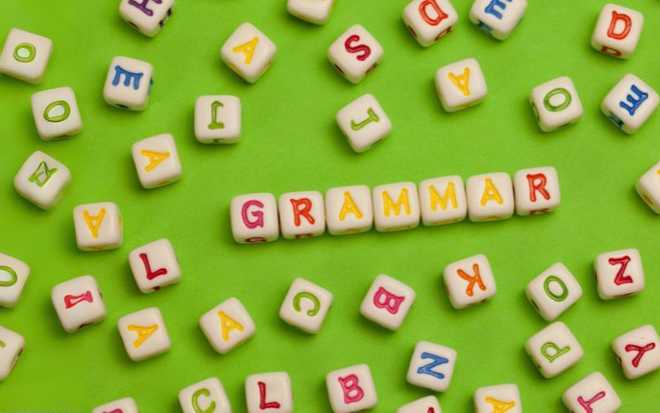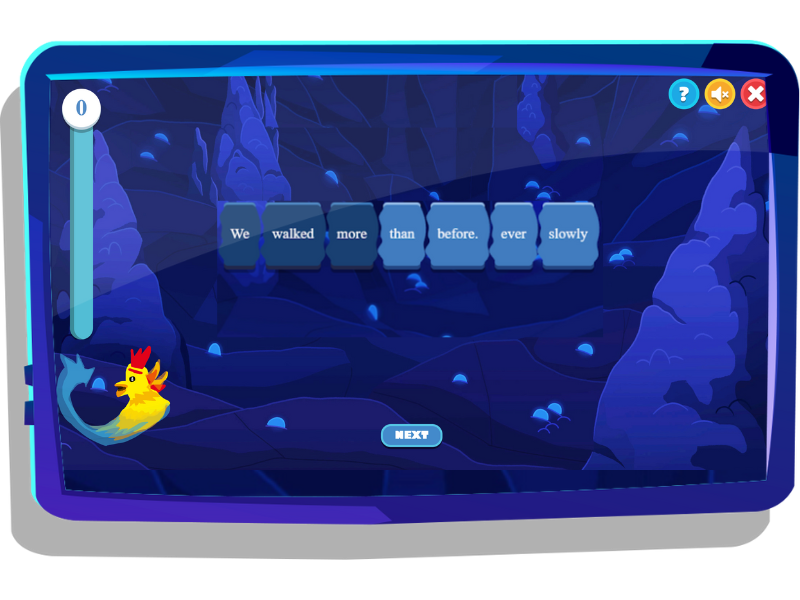Grade 3 Grammar
Grade 3 grammar help for your child

Home > Language Arts > Grammar > Grade 3
At Grade 3 level, your child will be experimenting with creative writing and trying to emulate their favorite authors. They need to excel in their use of grammar to be able to express themselves through writing. This is something that children need to spend a lot of time practicing at third-grade level to ensure that they structure their sentences and paragraphs clearly.
Below is a list of grammar skills that all third-grade students should try to master:
- Use abstract nouns
- Use simple verb tenses
- Use possessive nouns correctly
- Use correct subject-verb agreement
- Use correct pronoun-antecedent agreement
- Use Coordinating and Subordinating Conjunctions
- Write in simple, compound and complex sentences
- Use Comparative and Superlative Adjectives and Adverbs
Keep reading to learn each third grade grammar concept, and to get ideas on how your child can develop and practice their grammar skills!
Abstract Nouns
Nouns are naming words. Nouns that name people, animals, places, and things are sometimes called concrete nouns because they name things that can be touched.
Abstract nouns name ideas, feelings, or qualities. They cannot be touched. Examples of abstract nouns are:
- friendship
- love
- satisfaction
- hope
- opinion
- greed
- justice
Practice Tip
Create flashcards with a mixture of abstract and concrete nouns written on one side. On the opposite side, place the words “abstract” and “concrete”. Lay out the flashcards and challenge your child to collect all of the abstract nouns in the shortest possible time. You could also compete with your child to collect the concrete nouns faster than they can collect the abstract nouns.
Simple Verb Tenses
The simple tense has three forms: past, present, and future. Future actions are expressed by adding the auxiliary verbs will/would.
Simple past: Sam, the Spying Giraffe, told a joke.
Simple present: Sam, the Spying Giraffe, tells a joke.
Future: Sam, the Spying Giraffe, will tell a joke.

Subject-Verb Agreement
The verb needs to agree with the subject in a sentence. If the subject is singular, the verb should be singular. If the subject is plural, the verb should be plural.
Examples
- Singular subject & verb: I am | she/he is
- Plural subject & verb: they are | we are
Pronoun-Antecedent Agreement
Pronouns are used to replace nouns; they help to make sentences less repetitious. It is important to make sure the pronoun agrees with the antecedent.
Example
Some of the penguins squawked and flapped their little wings excitedly.
- Antecedent - penguins (plural)
- Referent - their (plural pronoun)
Comparative and Superlative Adjectives & Adverbs
We use comparative and superlative adjectives to compare things and see how they are different from each other.
Adjective:
- Sam is tall.
Comparative Adjective - compares two things:
- Sam is taller than Will.
Superlative Adjective - compares more than two things describing the most or least of a quality:
- Sam is the tallest.
Adverb:
- Riya runs quickly.
Comparative Adverb - compares two actions:
- Riya runs quicker than Will.
Superlative Adverb - compares more than two actions describing how they are carried out:
- Riya runs the quickest.
Practice Tip
Your child can develop their understanding of comparative and superlative adjectives and adverbs by playing different quizzes and games on Night Zookeeper. In the challenge pictured below, children have to unscramble the sentence that includes a superlative adverb.

Coordinating and Subordinating Conjunctions
Conjunctions are linking words that join parts of sentences together. These parts of a sentence are sometimes named clauses.
Coordinating conjunctions join together two ideas where each idea is an independent clause. An independent clause is a complete thought that can stand alone as a sentence.
Example
Sam is funny, and he likes to eat bananas.
- Independent clause - Sam is funny
- Coordinating conjunction - and
- Independent clause - he likes to eat bananas
The most commonly used coordinating conjunctions are:
- for
- and
- nor
- but
- or
- yet
- so
Subordinating conjunctions join together an independent clause and a dependent clause within a sentence. A dependent clause does not make sense on its own; it adds additional detail to the sentence.
Example
Although his vision was blurry, Will thought he saw a dark shape moving rapidly through the trees.
- Subordinating conjunction - Although
- Dependent clause - his vision was blurry
- Independent clause - Will thought he saw a dark shape moving rapidly through the trees
Subordinating conjunctions include:
- unless
- because
- until
- if
- while
- when
- before
How Night Zookeeper can help

Night Zookeeper is a language arts program created to develop reading & writing skills in a fantastically fun way!
On Night Zookeeper, third grade students are taught all they need to know about grammar. Our program uses gamification to keep children entertained and engaged as they learn through various different activities. These include exciting games, grammar lessons, and even challenges.
Sign up today to get a FREE 7-day trial!
Related articles


Make Reading & Writing Fantastically Fun!
- Award-winning reading & writing program for kids
- Improves spelling, grammar, punctuation & vocabulary
- Over 1,000 different learning games and activities



